Del and Mladen review ‘Hunter Hunter’
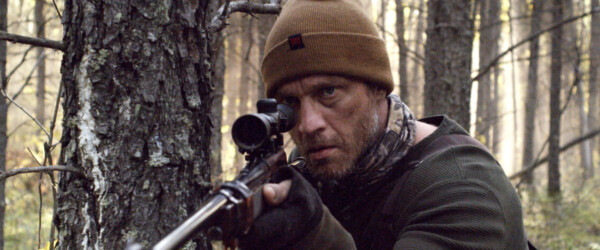
Image courtesy of IFC Midnight.
“Hunter Hunter” Starring Devon Sawa, Camille Sullivan, Summer H. Howell, Nick Stahl. Directed by Shawn Linden. 93 minutes. Unrated. Netflix, HBO, Hulu, YouTube.
Spoiler alert: This review contains reveals that are meaningful to the climax.
Del’s take
Remember Devon Sawa?
In the 1990s he was a teen heartthrob, bowl cut and all, starring in movies like “Casper” and “Final Destination.” Today Sawa is all grown up, a husband, father, and author of a dementedly hilarious twitterfeed at @DevonESawa . He’s also the lead in today’s stream gem, “Hunter Hunter.”
Fair warning: “Hunter Hunter” is not for everyone. It is dark and bloody. One scene is an over-the-top gorefest. I don’t usually go for that sort of thing but I found myself watching “Hunter Hunter” for the story and acting. The story was thin but fairly compelling. The acting was top notch.
Sawa plays Mersault, who lives in a northern backwater with his tremulous wife, Anne (Camille Sullivan) and daughter Renee (Summer H. Howell). Mersault is stubbornly dedicated to their impoverished and primitive lifestyle, believing salvation lies just around the corner with the next animal trapped and the next varmint extinguished. Speaking of which, a rogue wolf has entered their realm and is poaching animals from the traps Mersault has strung throughout the forest. Without the pelts those animals provide his family will starve, reason enough for Mersault to stalk the wolf and Anne to want to relocate into town, where a real house awaits and Renee can attend school.
During his wanderings Mersault comes across a grisly scene – a dump site for a serial killer. Incredibly, he does not report his discovery to authorities but decides to hunt the new predator himself. Meanwhile, a broken-down car introduces Lou, a nobody who is found crawling through the woods, injured and bleeding. Anne brings him to the family cabin for recuperation. From there, disparate story threads begin to converge, with horrifying consequences for all involved.
I have gripes with director Linden’s handling of “Hunter Hunter.” To begin, Mersault’s backstory needs beefing up. Why does he cling to a lifestyle his wife seems to hate? How is he able to dictate their living conditions with little argument from Anne or Renee?
Also, I have a problem with viewpoint. The story is told through the Mersault character until it reaches a certain point, where the viewpoint shifts to Anne. This change telegraphs an important plot resolution. I have no problem with changing viewpoint characters in movies but if Linden had employed the technique throughout instead of only when it became necessary, he might not have given away the ending.
Speaking of that over-the-top scene … the movie could have gotten along just fine without it. I’m not a fan of terror through shock. Tension is a much better source. Linden is able to do that in his building of the conflict between Mersault and the wolf, especially when Renee becomes a piece on the chess board. But once the blood starts gushing, all I felt was disgust.
Sawa had remained a child star in my memory so it was great to see him as an adult. He was fully convincing as Mersault, as were the other actors in their roles, and I look forward to his future movies. The setting of “Hunter Hunter” was lush and verdant, the cold palpable. It helped me appreciate the struggle that was their life in the woods.
If overt brutality and gore are not for you then I won’t recommend “Hunter Hunter.” If not, give it a watch. Despite its flaws it’s an interesting movie that will remain top-of-mind for days.
I give it a B.
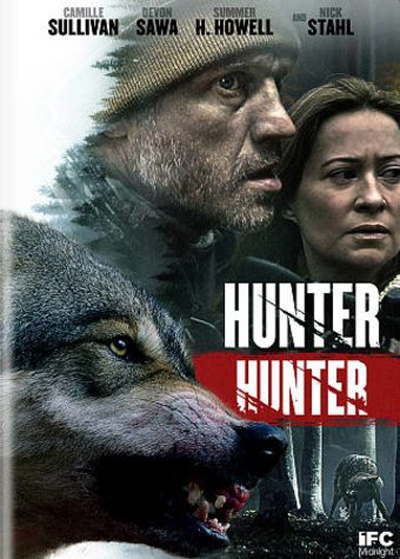
Mladen’s take
No, Del, I didn’t remember Devon Sawa. Could care less that he was a child star or that he has a twitterfeed. Nearly everybody has a twitterfeed because Twitter is open to nearly everybody, which leads to a planet-load of crap floating in cyberspace. Even Trump’s ban from twitter doesn’t keep the Twitterverse from ranting about the injustices committed against the one-term, poser president fascist dickhead. Twitter, Facebook, TikTok, Instagram, whatever, should burn in hell.
And, Del, because you’re clearly disinclined to level with our dear readers, let me define for them what you mean by “over-the-top gorefest.”
Torture pornography. That’s where the subplots in “Hunter Hunter” converge. The bad guy, fully conscious, is vivisected by the broken mother. The only redeeming part of that prolonged encounter between him and her wielding the tools of skinning and de-organing animals was the song playing in the background. It might have “narcissist” in its title, but I’m not sure. The song was ominously mellow with a touch of psychosis. Loved it.
“Hunter Hunter” starts OK enough. Dad Mersault teaching his daughter Renee the ways of the boreal forest of Canada is neat. He’s an animal trapper and she’s a trapper trainee. The plot establishes quickly and efficiently that Mom Anne was sufficiently content with the 18th Century life her husband wanted to live when they were newlyweds or Renee was still young. But, now, Renee needs true schooling, the pelts are worth much less, and the few the family is producing are fewer because a wolf has been raiding the traps. Mersault wants to stay in the woods. Anne is eyeballing life in a town. Renee is caught between. Understood.
“Hunter Hunter” then starts to degenerate. The first hint of the trouble on the way is Anne starting to worry that the wolf is directly a threat to them, as in it wants to eat the family. Any seasoned outdoorsman or environmentalist knows wolves are no threat to people. So, “Hunter Hunter” uses the cheap ploy of making the trap-raiding wolf the wolf of the fairy tale Little Red Riding Hood to build tension and allow misdirection. Didn’t buy it.
Then, as Del notes, “Incredibly, (Mersault) does not report his discovery to authorities but decides to hunt the new predator himself.” The discovery is, of course, the cache of female corpses left by a serial killer and rapist. What the hell? Yes, Mersault is a man’s man. He knows the woods. He can trap animals, but is the skill of trapping animals applicable to the skill of hunting and capturing a demented human being? And, by the way, I assume murder is against the law even in backwoods Canada. Wasn’t Mersault obligated to call a Mountie?
As the story unfolds, Marsault becomes the hunted, the hunter of Mersault continues to hunt, but then he becomes the hunted. Maybe the film should’ve been called “Hunter Hunter Hunter.”
The film has wonderful cinematography. The north woods are breathtaking. I agree with Del, the acting is good. There’s a couple of nice-touch quick glimpses of something amiss. None of the above, however, offsets what “Hunter Hunter” transforms into during the last, oh, 5 minutes of its run. “Hunter Hunter” is a C and that’s generous.
Mladen Rudman is a former journalist and technical writer. Del Stone Jr. is a former journalist and author.
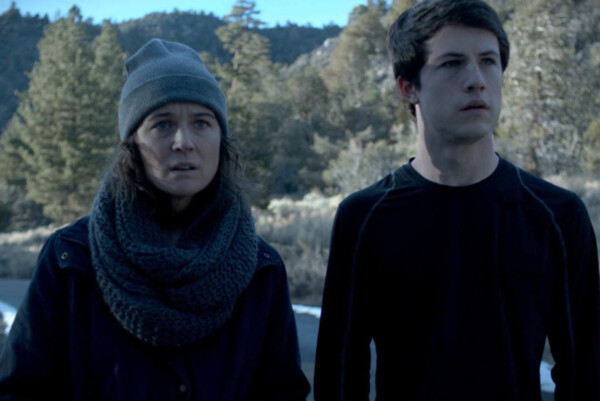
Image courtesy of Netflix.
“The Open House” Starring Dylan Minnette, Piercey Dalton and Sharif Atkins. Directed by Matt Angel and Suzanne Coote. 94 minutes. Rating not listed.
Del’s take
“The Open House” was pitched as a horror movie and I watched it because Netflix has been streaming decent non-theatrical programming lately (“Mindhunter” for instance).
Unfortunately, that isn’t the case here. While “The Open House” initially holds promise as a lite version of “The Shining,” it undergoes a slow collapse as it slides toward its dire conclusion, leaving the viewer to wonder what the point of all that was.
It’s hard to discuss the movie without spoiling it, so beware.
Suffice it to say young Logan Wallace (Minnette) is a promising track star living in what I presume to be the foothills of the Rocky Mountains – Colorado perhaps? – with his mom (Dalton) and dad (Aaron Abrams). All is not well in the Wallace household. Dad’s unemployment has stretched the family budget to the limit, and mom has tried, without success, to find a job herself. The rent is due and there’s no money to pay the bills. Meanwhile, Logan hopes to make the Olympics in track and field, something that may become possible if he continues to improve his times.
Logan and his dad venture to a convenience store for a carton of eggs and quart of milk. While Logan waits in the van, dad is mowed down in the parking lot by a driver suffering a medical event. It is all very sudden and heartbreaking, as Logan’s relationship with his father is one of the movie’s sparse warm spots. With the death, a bad situation has been rendered into a horrible situation.
After the funeral, Logan’s aunt offers to let them stay at her and her husband’s remote mountain house while they figure out what to do with their lives. Logan’s mother, aware of their dire financial straits, accepts the offer, much to Logan’s predictably selfish despair. In fact, he spends the rest of the movie pouting and blaming his mother for their sad turn of fortune.
The house is a McMansion with a spooky old basement that seems impervious to illumination. In fact, not once do Logan or his mother attempt to locate and replace a burned-out light bulb, meaning several trips into the crypt-like basement with a flashlight (and you know who temperamental flashlights are in horror movies) will be necessary after scary things start happening.
The townfolk comprise the usual suspects – the crazy, nosy neighbor; and the noble store clerk who might just have an interest in Logan’s mother (much to Logan’s irritation) and otherwise manages to show up at any number of weird, beyond-coincidental occasions, conjuring visions of stalkers.
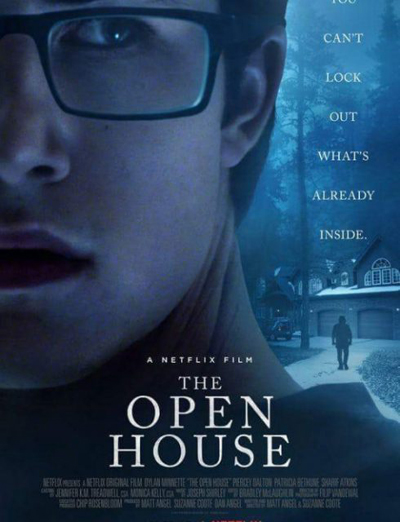
Meanwhile, weirdness escalates. The water heater keeps getting turned off. Logan’s glasses disappear, then reappear. Loud noises interrupt everybody’s sleep. Strange vehicles pull into the driveway, their headlights blinding, then abruptly leave. And nobody is looking for a job.
The house is for sale. Every Sunday between the hours of 11 a.m. and 5 p.m., Logan and his mother must leave for open house. The movie suggests that somebody, or something, arrived for one of these open houses and decided to stay.
Which is a shame, because the movie’s other tensions provide much more interesting potential – Logan having to set aside his dreams of the Olympics, the resentment he feels for his mother, and his mother’s resentment of her husband’s failure to provide for them. These are barely explored in favor of, well, dead-ends, red herrings, and an antagonist who seems to arrive from somewhere beyond the movie’s logical reach.
“The Open House” wraps with an absurd and pointlessly nihilistic series of events that remind me of films I saw in the 1970s, movies that sought to achieve emotional resonance by clubbing the viewer with cruelty and shock. That didn’t work then and it doesn’t work now.
Minnette is wooden and unsympathetic in his role as Logan, while Dalton manages to imbue her saddened wife and mother character with moments of real pathos. Both are saddled with a screenplay that, in the end, doesn’t make much sense.
It’s a nice-looking movie but I can’t recommend “The Open House.” If you subscribe to Netflix streaming and want to watch it, by all means do so. It will cost you only 94 minutes of your life.
I would grade this movie a generous C-, maybe a D+.
Del Stone Jr. is a former journalist and author.
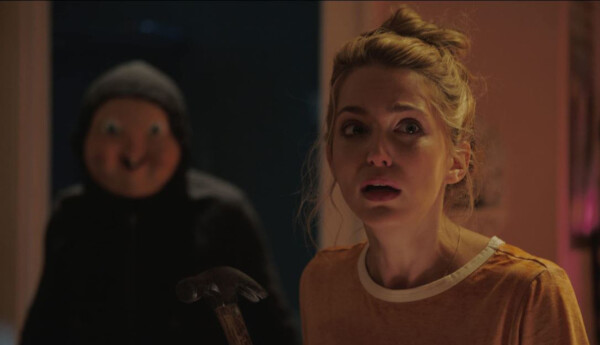
Image courtesy of Universal Pictures.
“Happy Death Day” Starring Jessica Rothe, Israel Broussard, Ruby Modine, Charles Aitken and Laura Clifton. Directed by Christopher Landon. 96 minutes. Rated PG-13.
Del’s take
I’m not going to say it … I’m not going to say it. …
Oh hell, who am I kidding? Of course I’m going to say “Groundhog Day” with a killer.
That’s the conceit of “Happy Death Day,” an entertaining trifle of a horror slash comedy (Yes!) that has come to a theater near you. Just in time for trick-or-treat, “Death Day” neither scares, edifies, nor elevates the spirit. What it does do is entertain with humor, mild romance and a who-dunnit that will defy your attempts to finger the killer.
The story goes like this: It’s Tree Gelbman’s (Rothe) birthday, but even Tree isn’t celebrating. She’s a beta beeyotch sorority snob who treats people as if they were disposable, except for her yummy college professor, Dr. Gregory Butler (Aitken), with whom she’s having an affair. She awakens in a dorm room (to her shame) with a ferocious hangover and finds she cannot remember what she did last night, especially as per young Carter Davis (Broussard) whose bed she currently inhabits. Carter is below her station in the college caste and she hustles out of his dorm lest one of her sorority sisters tumbles onto her indiscretion.
That night, on her way to a party, Tree encounters the killer, an individual wearing a pig baby mask who chases her across the campus and eventually stabs her to death. Tree jolts awake in Carter’s bed, as she did that morning, and the day begins to anew, unspooling exactly as it did before, perhaps with a change of viewpoints for the audience’s sake.
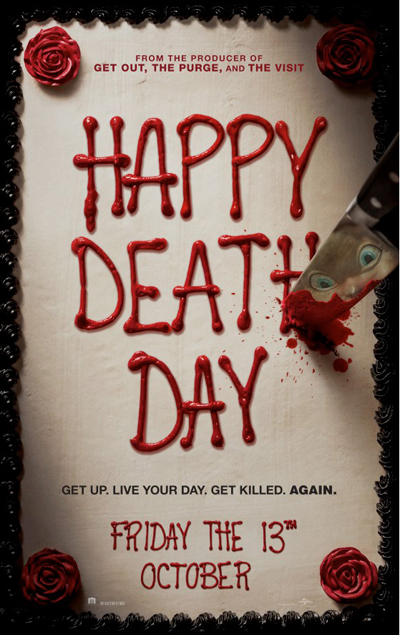
As the movie goes on we learn Tree will continue to relive the day, over and over, until the killer is dispatched. Problem is, her every attempt to kill the killer ends with her own death – by gunshot, baseball bat, hanging, bus collision, even fire. Does the obnoxious Tree deserve to live? Will she figure out a way to destroy her nemesis before dying herself?
Interestingly, each iteration of her life gives Tree a chance to see what a terrible person she has become. As the callow but earnest young Carter observes, it’s never too late to change. And change is what Tree does, so that by movie’s end you may actually like her, assuming she lives long enough for that to happen.
At roughly an hour and a half, “Death Day” is shorter than a lot of current movies such as “Blade Runner 2049,” which clocks in at almost double the length. The movie moves along at a brisk pace and you’ll be kept awake by the snappy dialogue, daily variations in Tree’s manifestations, and the puzzle over the killer’s identity (Hint: Tree is an equal opportunity snob. It could be anybody on campus.). You won’t be put off by blood because there is hardly a drop.
I was unfamiliar with the cast, but everybody turns in a creditable performance, including director Landon. “Death Day” was written by Scott Lobdell, who is primarily a comic book writer.
Somebody at Blumhouse must be licking his chops. Costing a mere $4.8 million to produce, “Death Day” has earned $40 million plus as of week 2. It will likely top out at over $50 million earning a tidy profit for the Blumhouse horror meisters. Expect it to appear on DVD and streaming in the not too distant future, joining a fraternity – or in this case sorority – of young adult-themed slasher movies that provide a forgettable hour and a half of entertainment value then recede into the cinema background.
Go see it at the movie theater, because all movies deserve to be seen on the big screen.
I give it a score of B+.
Del Stone Jr. is a former journalist and author.
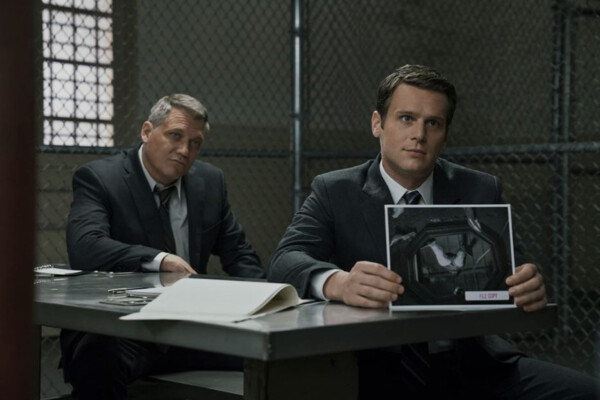
Image courtesy of Netflix.
“Mindhunter” Starring Jonathan Groff, Holt McCallany, Hannah Gross and Anna Torv. Creator Joe Penhall. 10 one-hour episodes. Rated TV-MA. Netflix
Del’s take
Stephen King gave “Mindhunter” his seal of approval and Entertainment Weekly graded it at A-.
Me? I’m not so sure.
Season 1 of this Netflix original series features 10 one-hour episodes of fascinating detective work and nifty nostalgic music, cars and fashions from the late 1970s. It’s a good show; I’ll definitely check out Season 2. But is it a terrific show? That remains to be seen. In my opinion, it has a couple of problems that for now are keeping it from becoming the next “Breaking Bad.”
“Mindhunter” stars Jonathan Groff as rookie FBI agent Holden Ford, a callow young man who is new to the wiles of women and criminals. He yearns to get inside the brains of notorious killers, as he believes by questioning these men – and invariably they are men – he can find commonalities in their destructive behavior that may help predict who might be the next Charles Manson.
He is approached by fellow agent Bill Tench, an instructor who belongs to the bureau’s Behavorial Unit. Tench convinces Ford to join him in “road school,” a program by which a bureau operative visits police departments around the country, teaching investigators the latest in FBI criminal behavior theory.
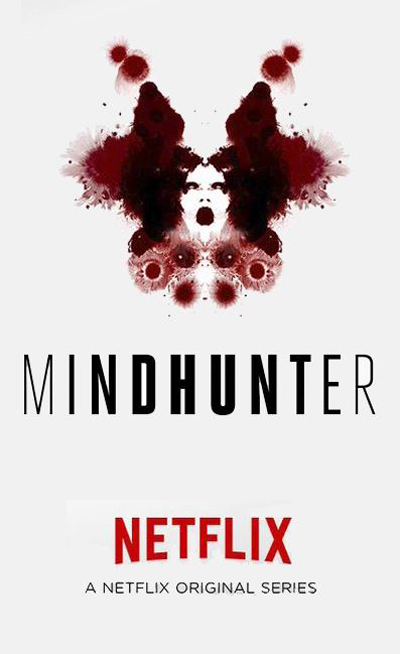
Ford soon realizes his road school excursions allow him a unique opportunity – to visit nearby prisons warehousing notorious mass killers and interview them. He convinces Tench to go along and soon, the two are assembling a loose dataset of serial killer behavior.
Simultaneously, investigators with the police departments ask Tench and Ford’s help in solving local murders. Ford applies what he has learned from his insidious interview subjects and tries to solve the crimes with a skeptical and reluctant Tench in tow.
They are joined by a college professor (Torv) who tries to apply discipline to their information gathering techniques and collation. While all of this is being done under the presumptive purview of the agency, Tench and Ford’s boss back at Quantico, gruff Unit Chief Sheppard (Cotter Smith) in fact doesn’t know a damn thing about that’s happening. When he finds out he wants to pull the plug, but word gets out and grant money flows in, legitimizing Ford’s quest to hunt the minds of mass murderers.
Therein lies a new and dangerous problem. Can the wide-eyed, innocent Ford probe the depths of murderous insanity without becoming insane himself?
“Mindhunter” contains the DNA of both “Silence of the Lambs” and “The X-Files,” more the latter than former. Sure, they’re all about FBI agents solving mysteries. But it they all have the same look and feel, an institutional starched shirtiness if you will. Violence and gore are restrained, although the language is incredibly salty, including the C-word. And the things they talk about – whew! Suffice it to say this is not a show for children. Oh, and there’s a bit of sex, too. It seems young Mr. Ford is still working on his, shall we say, oral exams.
McCallany is sensational as the entrenched, dogmatic Tench. It is only when the camera focuses on his home life that he seems less than sure-footed, perhaps by design. Speaking of which, things are rocky at home, with an adopted child who shies away from him and won’t speak, to a wife contemplating divorce.
Ford’s girlfriend Debbie is smart, quick-witted, sardonically hilarious and played to perfection by Gross. Torv’s professor, Dr. Wendy Carr, is icily detached. She reveals only isolated glimpses of humanity – feeding an unseen cat in the laundry room of her apartment complex, or becoming enraged with Tench and snarling, “Fuck you, Bill.” If looks could kill, she would be a ninja assassin.
Then there’s Groff’s rendition of Ford. In the first few episodes he is portrayed as innocent and trusting. Surely this blank mold of a man could not emerge from the company of serial killers without somehow being shaped by them.
Suffice it to say by Episode 10 Ford has changed, and the transformation is dramatic. That’s one of the problems I have with “Mindhunter.” Ford’s evolution is hasty and to a large extent without foreshadowing. Along about Episode 7 I was asking myself, “What happened to him?”
And a nitpick if you will: Tench and Ford’s crime-solving abilities seem a tad suspect. In every case it is the local investigators who point them in the direction of the eventual suspect. Their role becomes one of tricking that person into confessing to the crime, which itself becomes a plot point and, I suppose, a device to symbolize the moral and ethical alchemy taking place within Ford.
Still, “Mindhunters” is a good series and well worth a watch. I expect its positive reception will result in a new season, and I’ll be interested to see where it goes.
One last kudo: Cameron Britton, who plays mass murderer Edmund Kemper, steals every scene he’s in. I could see a limited series constructed around him.
I grade “Mindhunter” a B.
Del Stone Jr. is a former journalist and author.
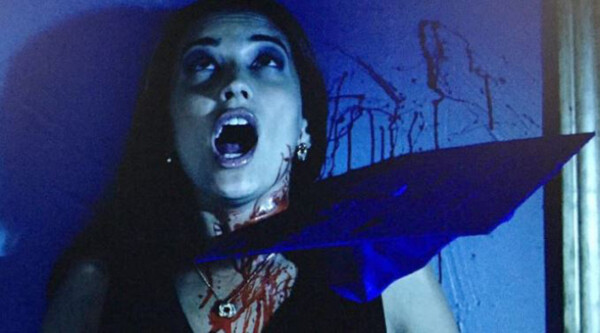
Image courtesy of Marvista Entertainment.
“Most Likely to Die” Starring Chad Addison, Jake Busey, Tess Christiansen, Heather Morris, Perez Hilton. Directed by Anthony DiBlasi. 90 minutes. Unrated.
Del’s take
Hollywood has exhausted its trove of mask themes for slashers these days.
Leatherface, Michael Myers, Jason Voorheis, Ghostface – they all have distinctive face coverings to make them scarier than what they really are – close-to-middle-age white dudes with mommy issues. A close-to-middle-age white dude is scary only when he shows up as your Tindr date, so if you’re John Carpenter or Tobe Hooper, you put your killer in a mask.
Hoping to join that cadre of baddies is The Graduate of “Most Likely to Die,” a room-temperature horror flick that never receives its diploma. Our Graduate wears an overbaked pot roast of a mask, which bears no resemblance to the conflict or subtext. To complete his ensemble he’s wrapped in a graduation gown, with a cap so sharp and deadly that if it were a human being, it could trade barbs with Bill Maher.
Too bad the script and acting aren’t equally cutting edge. The only thing they’re cutting is the cheese because this is one stinker of a scary movie. Don’t waste your time.
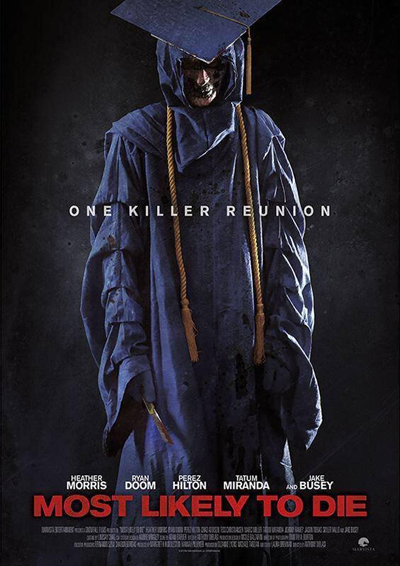
“Most Likely” features an ensemble cast starring Gaby (Heather Morris), a world poker wannabe who attends a reunion of her old high school clique at buddy Ray’s (Jason Tobias) remote hillside pad. She’s joined by eight others as they await their host, who’s mysteriously AWOL.
It takes no time for this Band of Mother******s to fall back into its high school pecking order, led by Brad (Ryan Doom), a recovering narcissist TV star who knocked up Gaby and dumped her when they were seniors (yet he still secretly pines for her, despite the presence of his supermodel shack job Bella – Tatum Miranda). But Gaby is having none of it. She’s already “lost big” to Brad once and she’s not going to do it again. We both know she’s lying through her fashionably bleached teeth.
Meanwhile, where the heck is Ray? It isn’t until the second act that somebody decides to go looking for him, and even that is a ploy to get a certain poker expert away from the others for some wooing and cooing.
They find a mysterious wooden shack where one of their members has been separated from her life by way of a slashed throat. Others turn up similarly murdered, and the story proceeds from there.
Clues are left along the way, but they aren’t developed. The manner of death might suggest a motive – that isn’t pursued. Nor is the possibility that one of them is the killer. It’s as if screenwriter didn’t know what to do with those complications and let them die on the vine.
The dialogue is as blah as unflavored yogurt and the pace as brisk as a jar of sun tea on the sidewalk. I’ve seen scarier episodes of HGTV’s “Fixer Upper.” Acting is similarly uninspired. The sole breath of life is Freddie (Perez Hilton), and even he is saddled with the stereotype of the over-the-top token gay boy who runs from the fight because he doesn’t want to break a nail.
I hated everyone and didn’t care who died. I wasn’t scared – not once – and stuck around only for the reveal, which was oddly anticlimactic and sprang from the ethers with little setup. My emotional investment lay in Gaby’s pricey convertible, which I hoped wouldn’t be scratched.
It’s a shame because “Most Likely” could have been a funny, sexy horror movie, like “Happy Death Day” or “Buffy.” Instead, it’s a paint-by-number middle school video project where every single part was phoned in.
I saw it Netflix, the online equivalent of the crappy Grade Z movie section in your old video rental store. But let me do you this favor:
Don’t bother. Grade D.
Stone is a former journalist and author.